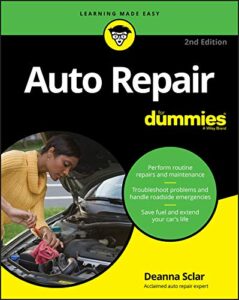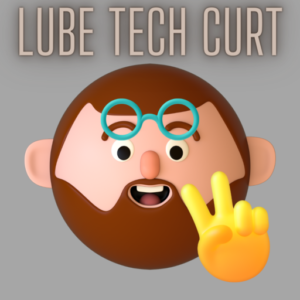Did you wake up one day and decide to be a lube technician? Maybe you have a desire to learn more about cars and are looking for the best place to start? Well, either way we are going to discuss what all is entailed for becoming a lube technician.
There are several ways to get into the world of auto mechanics. The first way is to spend thousands of dollars going to school to get a degree or become ASE certified. The second way is to get your foot in the door at a dealership or shop and start getting your hands dirty and learn as much as you can from the professionals that have been doing this for a long time. In my case, the second option is how I started. In my opinion, I learn more on a daily basis (I work at a Mazda dealership) working with the main techs than I ever would anywhere else and the information they provide is priceless to me. I wouldn’t deter anyone from going to school to get certified or get a degree but for me personally I didn’t want to spend all that money and missed time in what I’m doing now.
What to Expect as a Lube Technician
Whether you decide to join a shop or dealership, your first few days starting out will just be learning the ropes. When I first started, I didn’t have any tools and knew practically nothing about cars. My first few days were spent learning about checking tread depth on tires, using a brake measurement tool to check brake pads, where the different oil reels were at and how to properly lift a car with a rotary lift.
For me personally, the rotary lifts were very intimidating. It took me a long time to get the confidence to lift a vehicle by myself without having another technician check the lift points to see if I had them correct. Now, I can pretty much lift anything with confidence. It can be intimidating at first but you’ll get the hang of it eventually.
You’re going to be draining and filling a lot of oil as a lube technician (hence the name). You will find out very soon what types of tools you will need which we will cover in another post. If you are working at a dealership, you’ll get used to doing the same car over and over and will get faster at it.
The main role in a lube tech beside changing oil is to do an inspection. Some states require a state inspection but I live in South Carolina and we don’t require state inspections so here is a list of what you’ll be doing:
- draining and filling oil
- checking all fluids and topping them off
- checking cabin and engine air filters
- checking tires, brakes, and other things like cracks in belts etc.
- testing batteries
- patching and replacing tires
Dealerships and shops are a little different as to what they will allow lube technicians to do. I’m a certified Mazda technician so even though I’m still a lube technician, I do other things. For example we have a massive fuel pump recall on certain cars right now and I have done so many I can replace a fuel pump in under 15 minutes. Once you build your time as a lube technician and the other technician start to trust you, they will have you help and do other things and you may eventually get on a hybrid plan that will pay you extra hours for what you do. The hybrid plan is good because it kind of gets you ready for flat rate, which is where you start making real money.
My advice to new lube technicians
Before you decide to take on this role, you should know that this is hard work. Lube technicians work on more cars than the other technicians and you have to hustle and be efficient at the same time.
One very important piece of advice that I have learned is always double check yourself. For example, when I bring a car in I will take the oil cap off and place it at the hood latch so that when I go to put the hood down, it won’t lock and I’ll know that I didn’t put the oil cap back on. I’ve seen new technicians forget to put oil in a car and that can be catastrophic. So, always be focused on your work and if you think you may have left a drain plug loose or whatever the case may be, double check yourself.
As far as tools, you will most likely see tool trucks that come weekly to wherever you are working. I would highly recommend staying away from them at first and buy tools from Lowes and home depot. For example, you’ll spend a thousand dollars on a snap on impact when you can go get a Milwaukee from home depot for 300$. Just because you can finance with the tool trucks doesn’t mean you should go overboard, people do it way too often.
In conclusion, working on cars is a very profitable business and is only going to the get better because people don’t want to work hard anymore. The more you learn the more valuable you will become.



